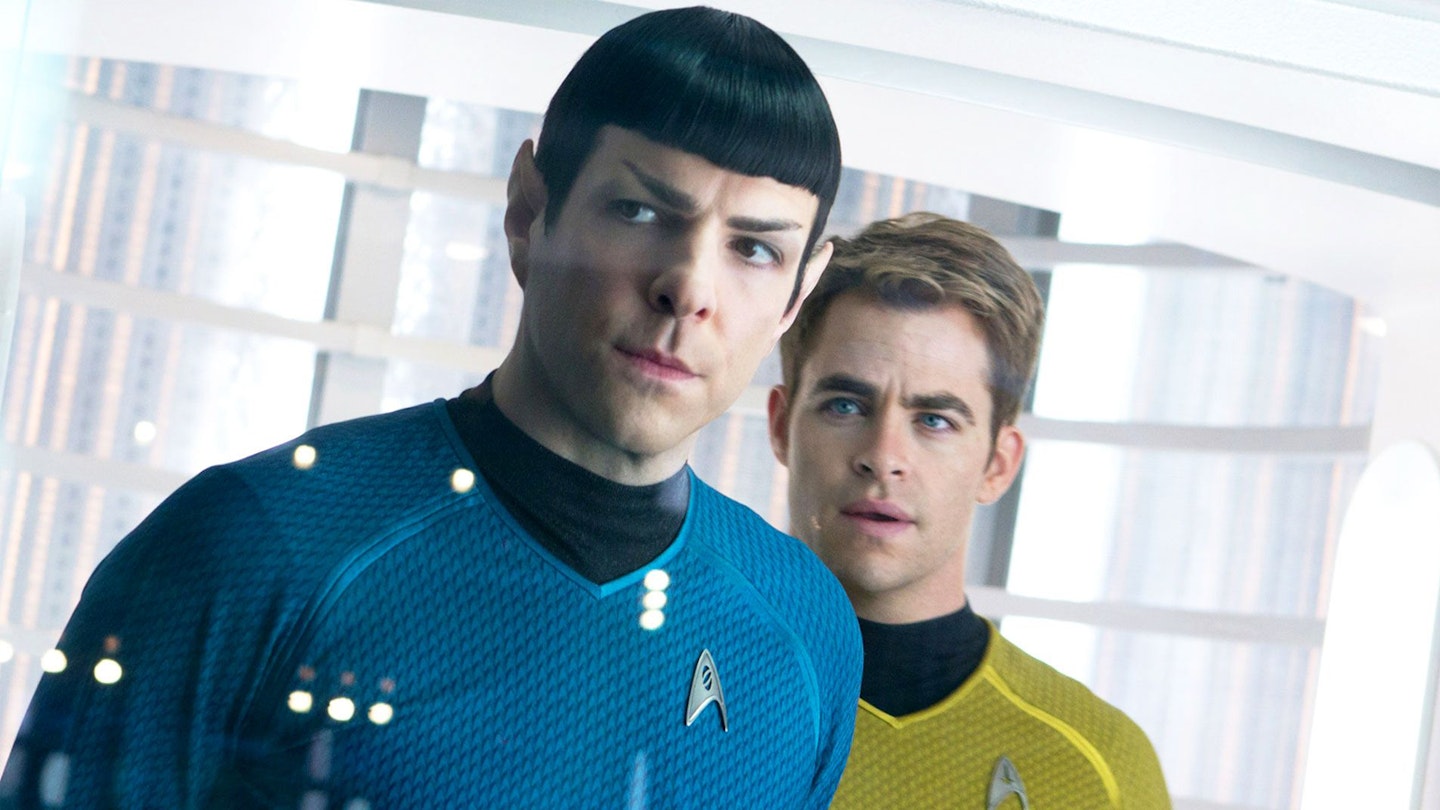One of the most beloved and influential science-fiction franchises of our time, the Star Trek universe continues to captivate audiences and expand into new worlds – from the Original Series, to the Next Generation, to the J.J. Abrams-led reboots, to the plethora of live-action and animated Enterprise outings on the small screen in recent years.
To mark the 40th anniversary of the all-time classic and many a Trekkie’s favourite, Star Trek II: The Wrath Of Khan, we’re boldly going where many have gone before, and wrangling the 13 big-screen Star Trek adventures into a definitive order of quality. Here’s Empire’s list of the best Star Trek movies, ranked from worst to best:
Every Star Trek Movie Ranked
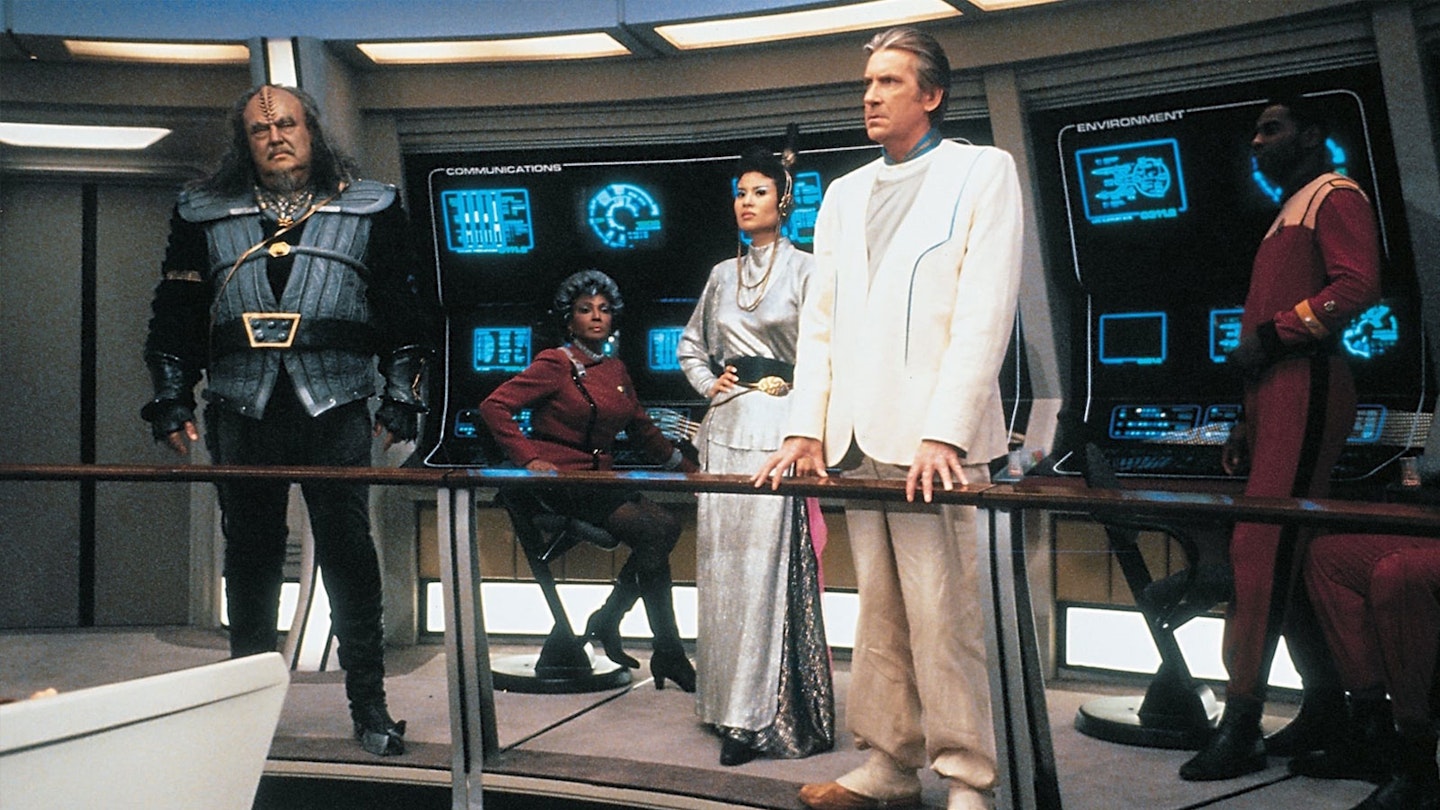 1 of 13
1 of 1313. Star Trek V: The Final Frontier
After two films directed by Nimoy, Shatner stepped up for Star Trek V, but it was a troubled production, beset by rewrites, re-shoots and industrial action. The results are, let's say, uneven: a collision of separate stories that don't really mesh, with some jarring tonal shifts. On one level this is a classic Roddenberry concept about exploring the universe and investigating its creation, but that sits alongside Klingon-Romulan-Human politicking and moments of comedy: Kirk and Bones ribbing Spock round a campfire, or Scotty knocking himself unconscious because he doesn't know his way around the new Enterprise. An impressive Dune-like desert sequence gives way to a knock-off Mos Eisley bar scene. Spock suddenly has a renegade brother we've never heard of before. And yet, while the separate parts might not add up to a cohesive whole, there's enough going on that some of it works. Fundamentally, this is a film where Captain Kirk meets God and is unimpressed. That might just be the ultimate Kirk moment, and getting there is worth a couple of hours of janky runaround.
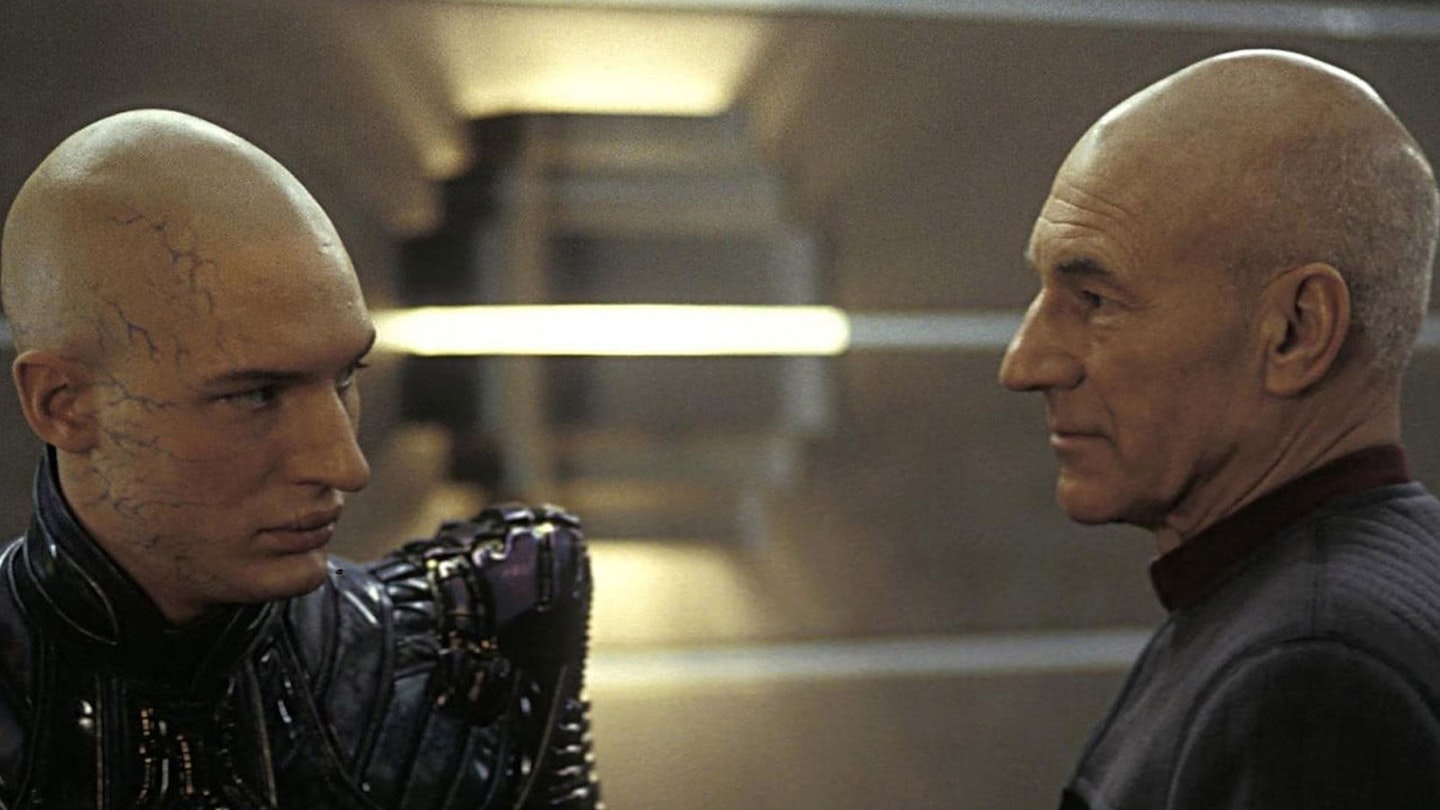 2 of 13
2 of 1312. Star Trek: Nemesis
A fairly catastrophic failure both critically and commercially, Nemesis did what no Trek film had done before: killed the franchise stone dead for almost a decade. It's still fun to hang out with the Next Generation crew, but that cozy familiarity aside, this is a disappointing experience. It's visually murky, bogs itself down with a leaden plot about Romulan intrigue, has its limelight hogged by Brent Spiner, and suffers from one of the weakest villains in the series: Tom Hardy's Reman rebel leader Shinzon. This was one of Hardy's earliest roles, and it probably isn't his fault, but he's less than stellar in it and looks borderline ridiculous, sporting a prosthetic nose. His introduction is set up as a huge reveal moment - "Oh my God, it's Picard!" – except he looks nothing like Picard, and the only visual clue that he's Picard's clone is that he's bald. The action periodically delivers and Data's sacrifice – while not a patch on Spock's – gives it a little heart, but as the Next Gen crew's last hurrah, this one saw Picard and the gang go out with a whimper, not a bang.
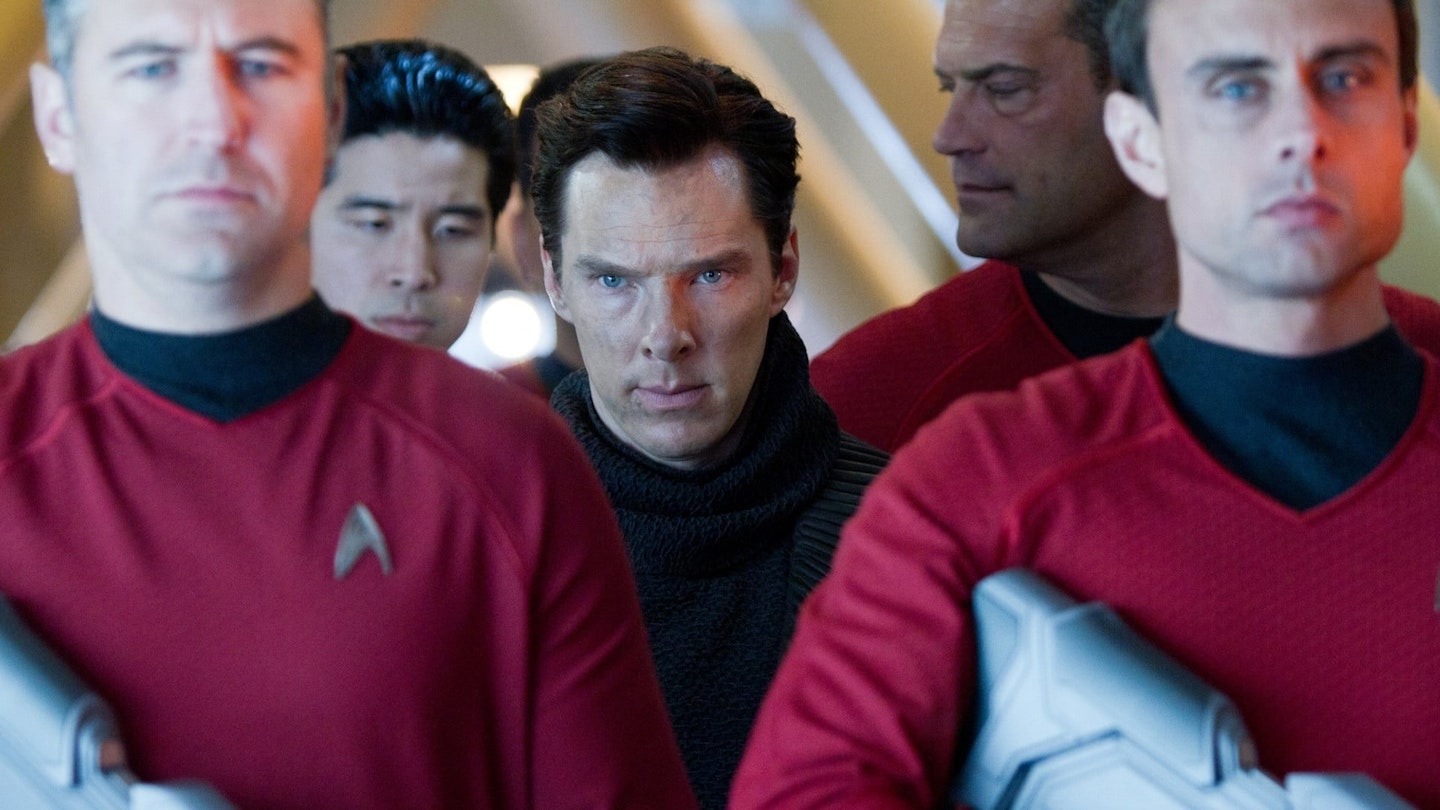 3 of 13
3 of 1311. Star Trek Into Darkness
The continuing mission of the rebooted Enterprise has all the pleasure of the 2009 film in its interplay between the principals, and some great San Francisco spectacle. But Into Darkness' great weakness is its villain: in this instance, Benedict Cumberbatch inheriting the role of Khan from Ricardo Montalban. The problem is exactly the same one that Spectre had with Blofeld: Khan only means something to the audience. He doesn't mean anything to the characters on screen. This Enterprise hasn't even met him in Space Seed. So, the films whole agenda – it's a remixed Star Trek II with another Khan, hold on to your hats! – doesn't work. This Khan is just another bad guy doing generic bad guy stuff. His being Khan is ultimately neither here nor there. "I'm not Harrison, I'm Khan." – are you? Who's that then? If you need a Zoom call with your future self to explain the stakes, you've got more problems than you realise.
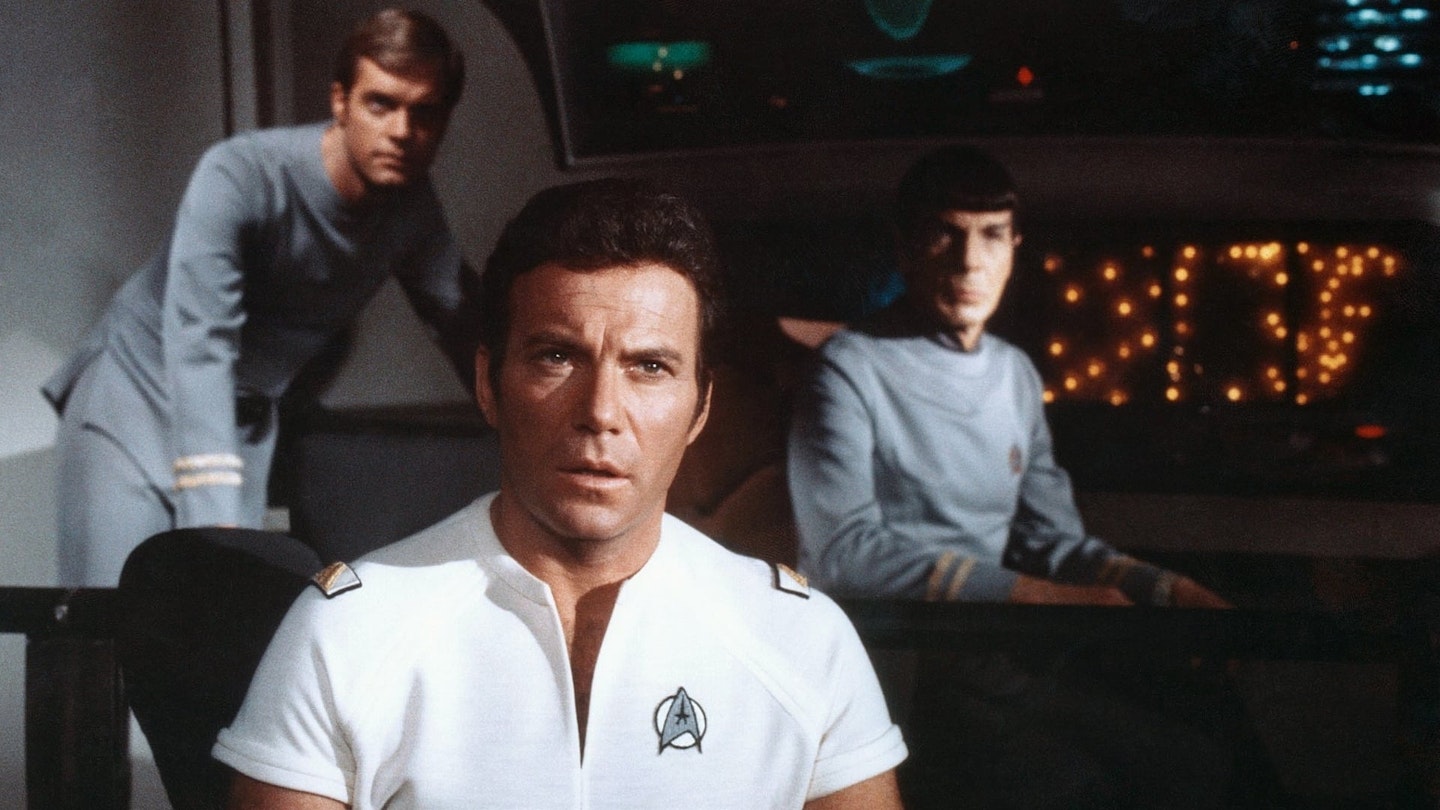 4 of 13
4 of 1310. Star Trek: The Motion Picture
The frequent goofiness of the Original Series sometimes obscured the fact that it was often dealing in strong sci-fi concepts and attempting serious philosophical musing. There was even a high-falutin' pretension to some of the episode titles, like season 3's 'For The World Is Hollow And I Have Touched The Sky'. So, while in a post-Star Wars world, a straight-up space adventure might have seemed the no-brainer way to approach a Star Trek movie, you can see how Gene Roddenberry would have been more attracted to trying to do Kubrick's 2001. Years in development, and at one point conceived as a new TV series before flipping back to film again, Robert Wise's film has been dubbed the Slow-Motion Picture by wags, and there's no denying its ponderousness. But where it achieves what it's aiming for is in the sequences designed to inspire absolute awe in the viewer – the early reveal of the new Enterprise in space dock, or Spock's solo float through the unbelievably vast V-Ger ship. It isn't to everyone's taste, it arguably doesn't make the best use of its cast, there's not much action and the new uniforms look awful. But there's a tone and ambition to The Motion Picture that's unique in Trek.
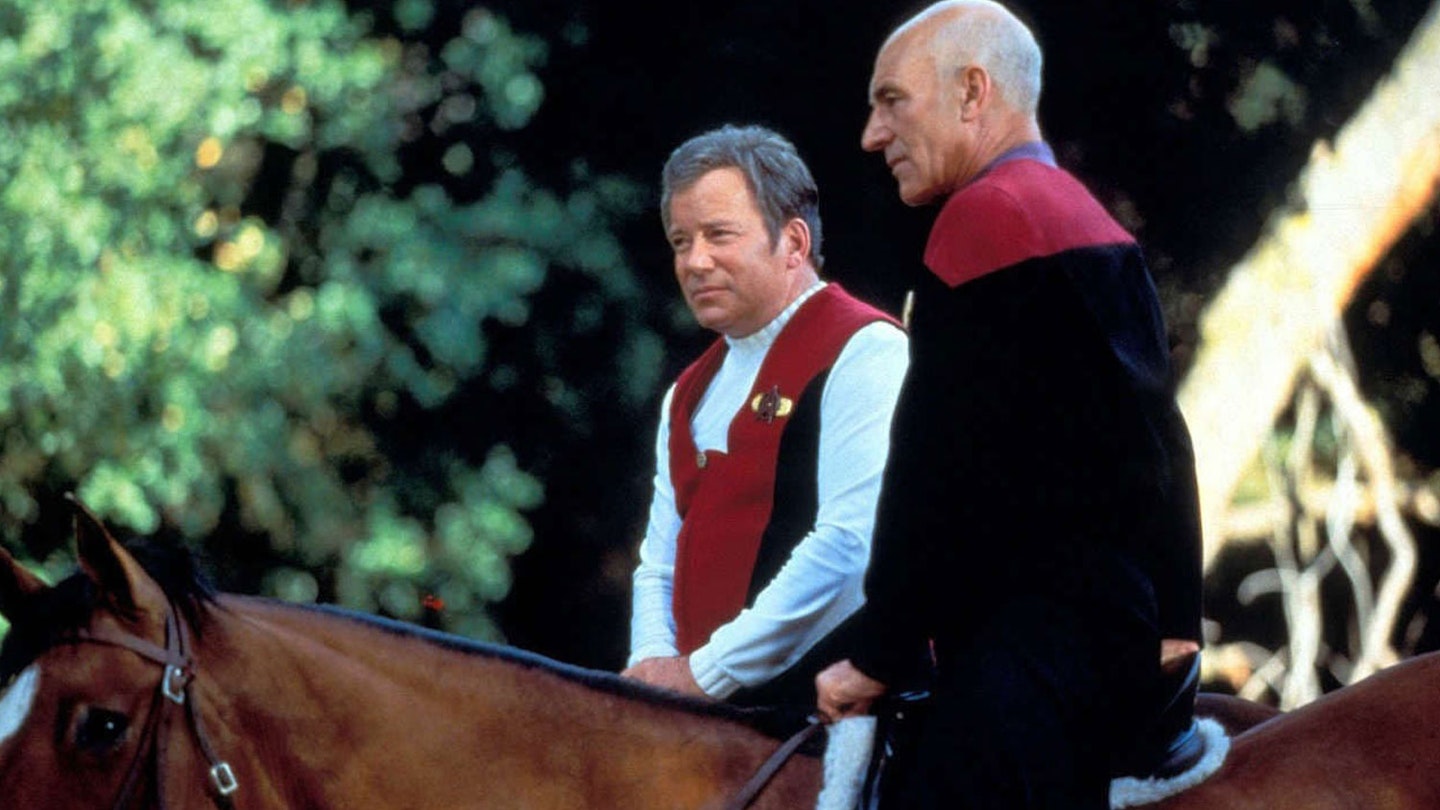 5 of 13
5 of 139. Star Trek: Generations
The long-heralded meeting of the generations kind of delivers on its promise, but instead of being great, it's only… fine. Part of the problem with Generations is its set-up, which shunts Kirk off into the time-defying Nexus. The plot device that gets him across the generations leaves all his own crew behind, meaning that the Original Series cast get cameos at best. Nimoy isn't in it at all. So, it's essentially a Next Generation movie with Shatner in it – less Enterprise meets Enterprise, more Picard meets Kirk. There are some Klingon shenanigans (hello TNG stalwarts Lursa and B'Etor), a wry Malcom McDowell is a solid principal villain, and the Enterprise is destroyed (again). But it never feels like the event it should, and Kirk's death, which ought to have been momentous, is badly fumbled; compare it to Spock's death in Wrath Of Khan and it's simply a shrug. Shatner was miffed enough that he brought Kirk back from the dead in a series of novels.
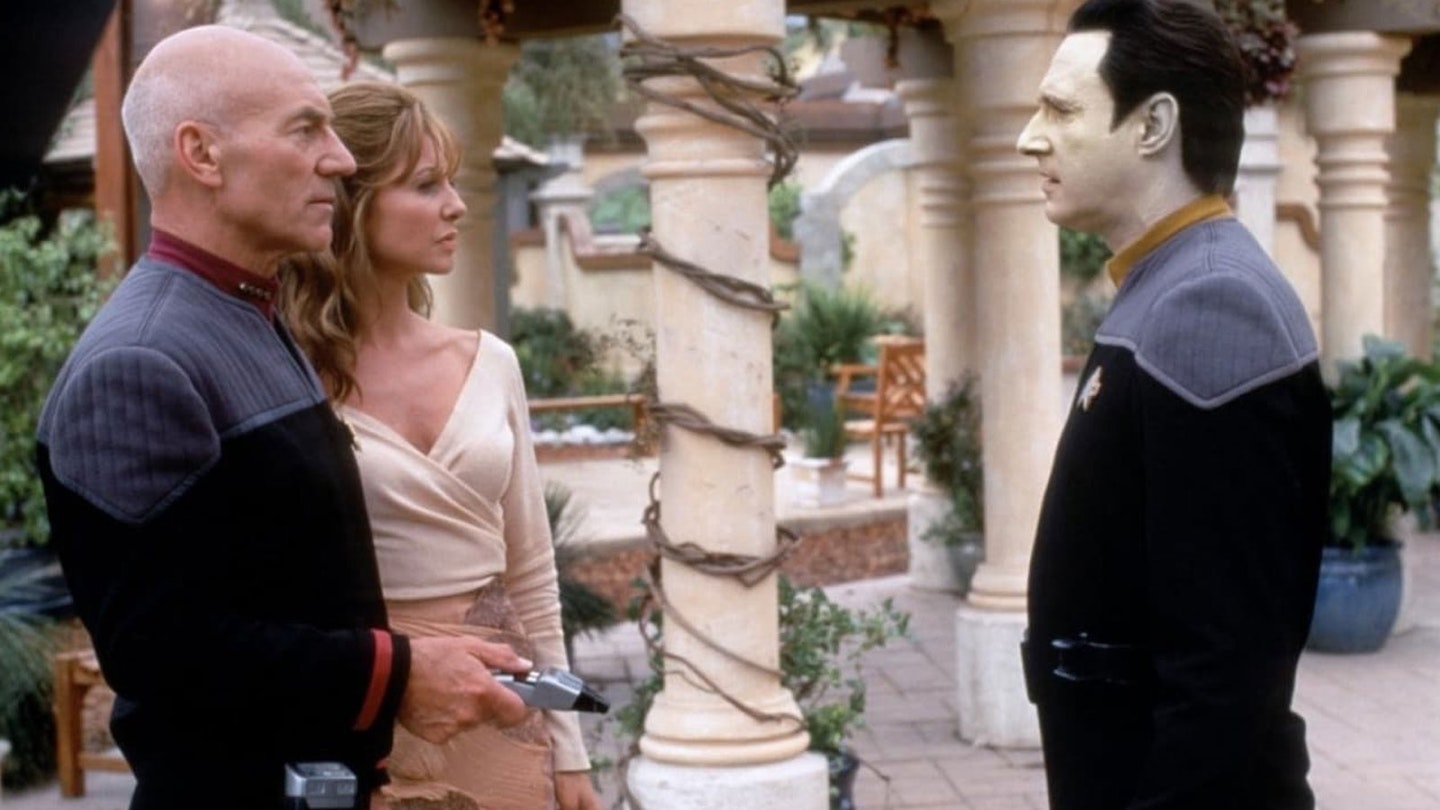 6 of 13
6 of 138. Star Trek: Insurrection
Of all the Star Trek films, Insurrection feels the most like a standard episode of the TV series (in this case, the Next Generation). The budget is obviously bigger, the screen wider, the effects more impressive, but strip those elements away and the story would barely have played any differently on the small screen. It's much lighter in tone than its immediate predecessor, First Contact, and therefore feels less consequential. But still enjoyable for all that. Largely a character piece focused on Data – as the Next Gen films increasingly were – it involves the Enterprise crew accidentally breaking Star Fleet's sacred Prime Directive of non-interference while on an observation mission on the peaceful backwoods planet Ba'Ku. The consequences draw the attention of the Son'A: Clive Barker-ish mummified aliens who keep themselves alive with frequent transplant surgery and are led by an unrecognisable F. Murray Abraham. The stakes are on the low side, but the set-pieces deliver. And you get to see Riker and Troi in the bath, if that's your thing.
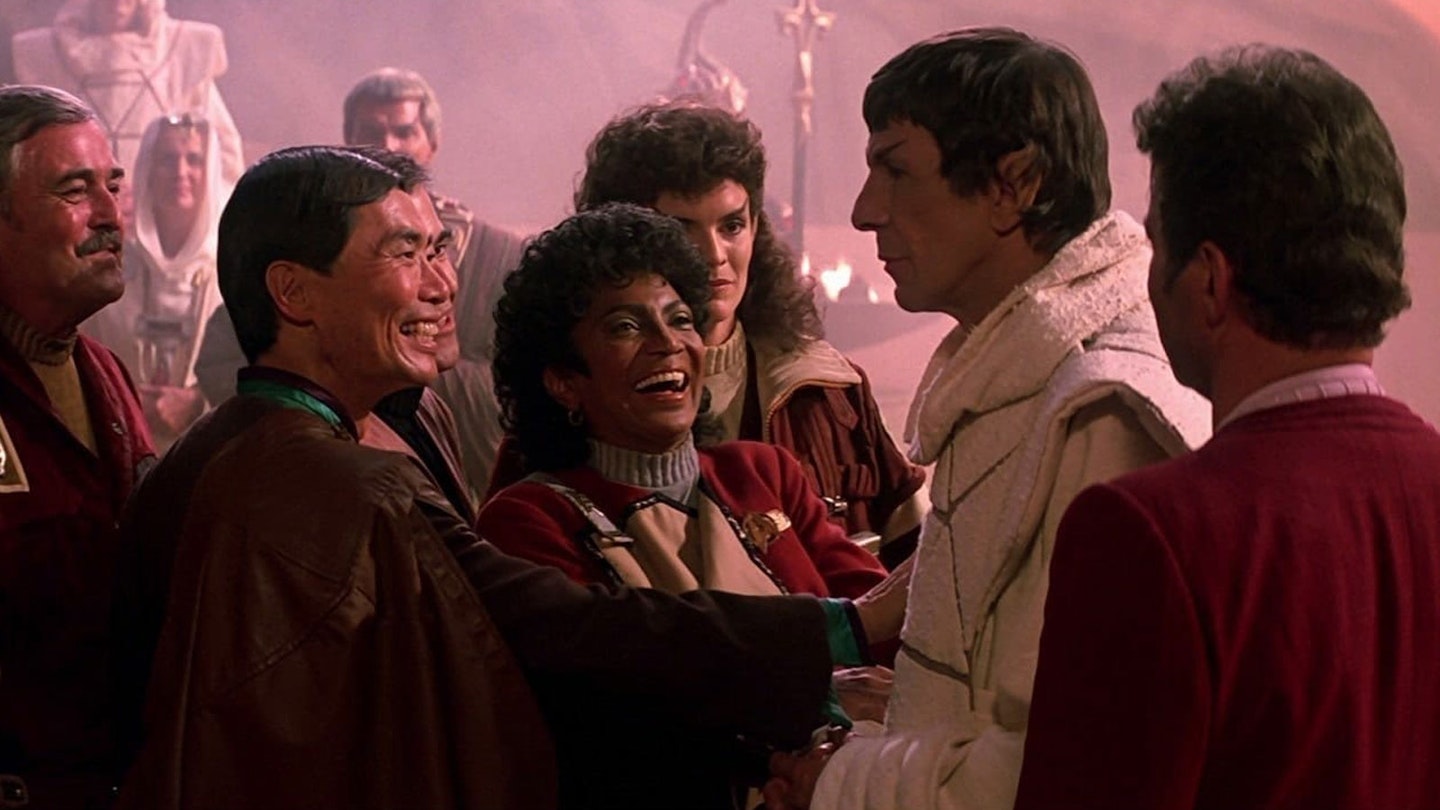 7 of 13
7 of 137. Star Trek III: The Search For Spock
Star Trek III can't help but feel smaller and less urgent than the extraordinary Wrath of Khan, and while clearly we want Spock back, this does feel like an entire film in the service of undoing Star Trek II's most unforgettable moment. It's less flat-out and simply less fun than its predecessor, and that seems to be a deliberate choice: while not at Motion Picture levels of heaviness, it still seems to be aiming for more weight again. Leonard Nimoy directs – the first of many Trek cast members to make the transition to the other side of the camera – and he's clearly great at getting performances, but less sure-footed with pacing and action. And there's a lot of spoken exposition. The villains, too, don't seem as threatening, just a brigade of ornery Klingons, led, rather oddly, by comic actor Christopher Lloyd. You can argue that he wasn't Doc Brown yet, but he was the Reverend Jim. Even the destruction of the Enterprise doesn't quite have the impact that's intended (although maybe that's a function of our having seen it destroyed again so many times in the years since). Still, it's never less than enjoyable, particularly in the Bones Behaving Oddly strand that largely drives the story. This is amiable, watchable Trek, and sometimes that's enough.
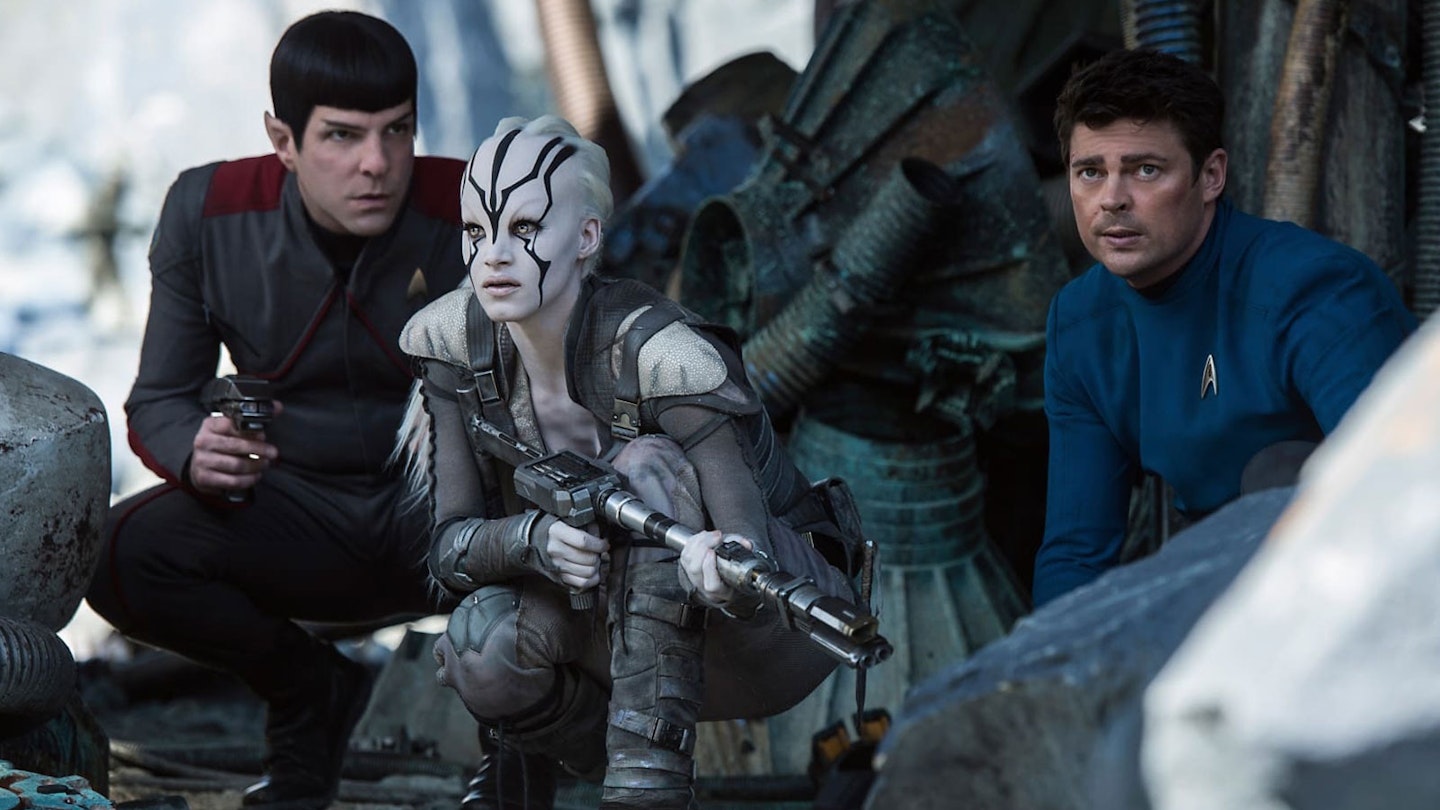 8 of 13
8 of 136. Star Trek Beyond
After the misfire of Into Darkness, the clear mission here was simple: forget fan-pleasing that pleases no one, and deliver a straight ahead brand new Star Trek adventure with the characters we know and love, untethered from any weight of continuity or dour intertextual engagement with past glories. Beyond is a breath of fresh air and, creatively, a huge success, benefitting from the gonzo energy of multiple Fast & Furious movie director Justin Lin. Simon Pegg's Scotty emerges as perhaps the film's MVP (odd that, considering he co-wrote it), and is given an amusing double-act with newcomer alien scavenger Sofia Boutella ("Beats and shouting!"). And Idris Elba is a solid villain, although you might wish the new series would play a different bad guy card than 'grudge against Starfleet'. Still, it's all such a blast that it's hard to mind too much, especially during the air-punching callback to the 2009 film's use of the Beastie Boys' 'Sabotage'.
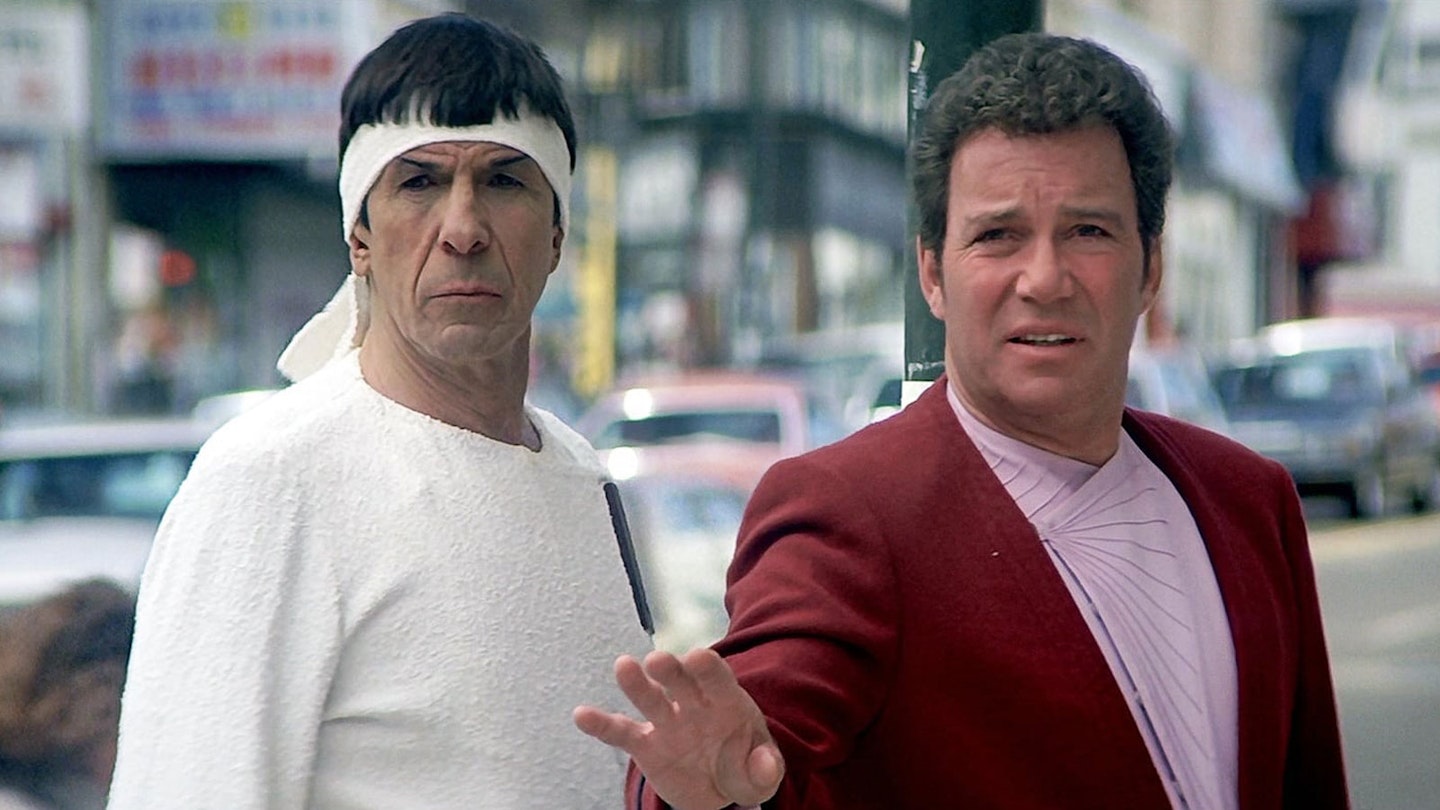 9 of 13
9 of 135. Star Trek IV: The Voyage Home
Aka 'the one with the whales'. A family-friendly, fish-out-of-water comedy adventure, almost entirely set on (at the time) present-day Earth, intent on delivering an environmental message and with no real villain to speak of. An Enterprise crew who don't even have an Enterprise… Star Trek IV shouldn't work, but somehow it's one of the best, and certainly most beloved, films of the series. Maybe that's about its accessibility: it's Trek enough for fans, but un-Trekky enough to tempt the unconvinced. The comedy is great (particularly thanks to the revived Spock, whose befuddled weirdness goes barely remarked in 20th century San Francisco); the extended cast all get decent stuff to do (think Chekov's side-mission to find a 'nuclear wessel'); and Shatner gets a love interest that doesn't play as creepy. The whole film is like a warm hug. Is it Star Trek? It seems from this evidence that Star Trek is whatever Star Trek says it is.
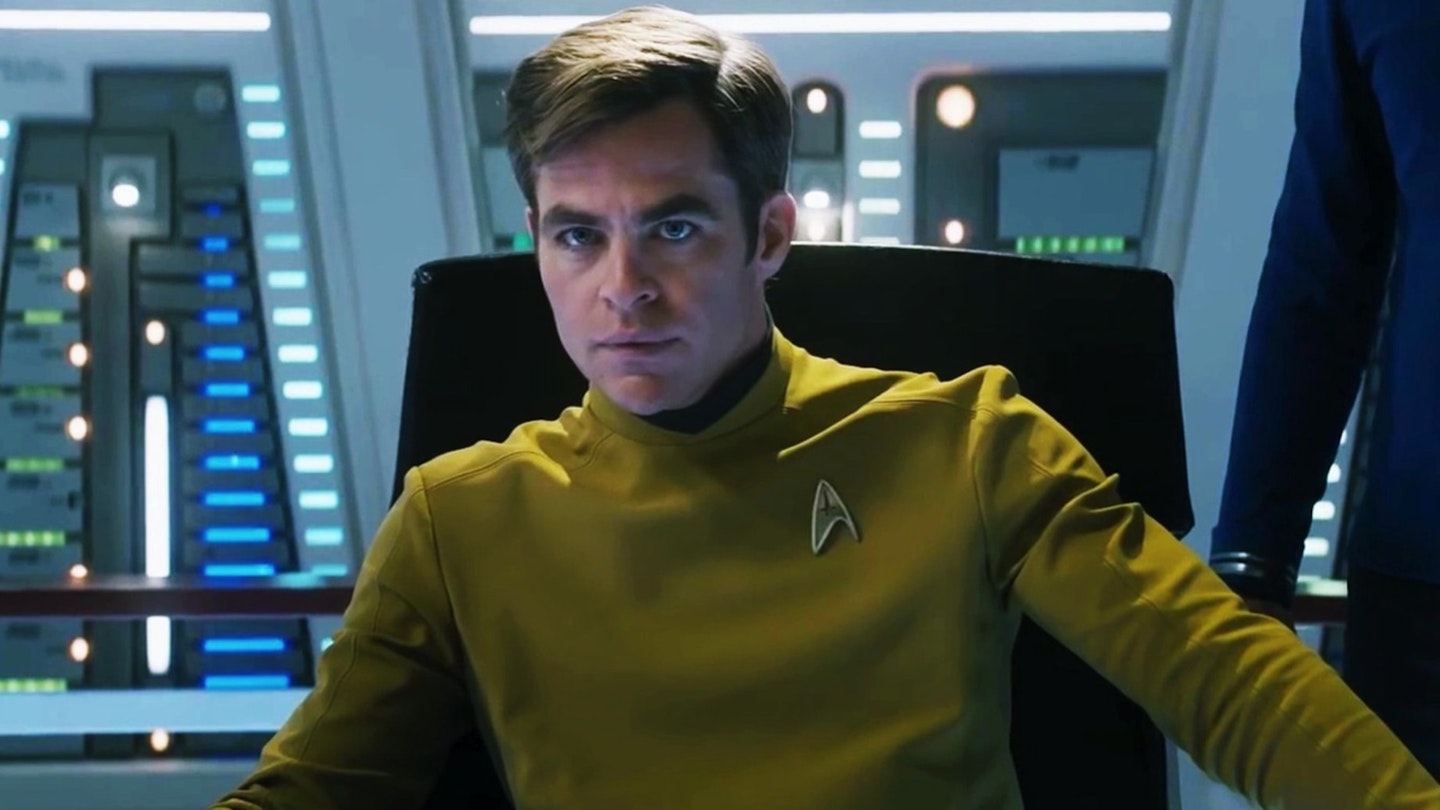 10 of 13
10 of 134. Star Trek (2009)
Star Trek's big comeback was a reboot and an origin story, re-casting the Original Series crew and telling the story of their first mission aboard the Enterprise, not long out of Star Fleet Academy. The surprise is the extent to which it's also Star Trek 11: smartly setting up a branching timeline that allows it to remain canonical even as it contradicts the Trek that's gone before. It has its gagh and eats it too. Leonard Nimoy cameos as the Spock we already know, and the new cast (Chris Pine, Zachary Quinto, Karl Urban, Zoe Saldana, Simon Pegg) do a great job at making their iconic roles feel both familiar and fresh. It's an energetic, colourful, pacy film, revelling in joyful nostalgia and a deep love for these characters. It's just a pity that, with the focus on building the team, Eric Bana's villain ends up a bit sidelined. Even while he's destroying planets, he's somehow no Khan.
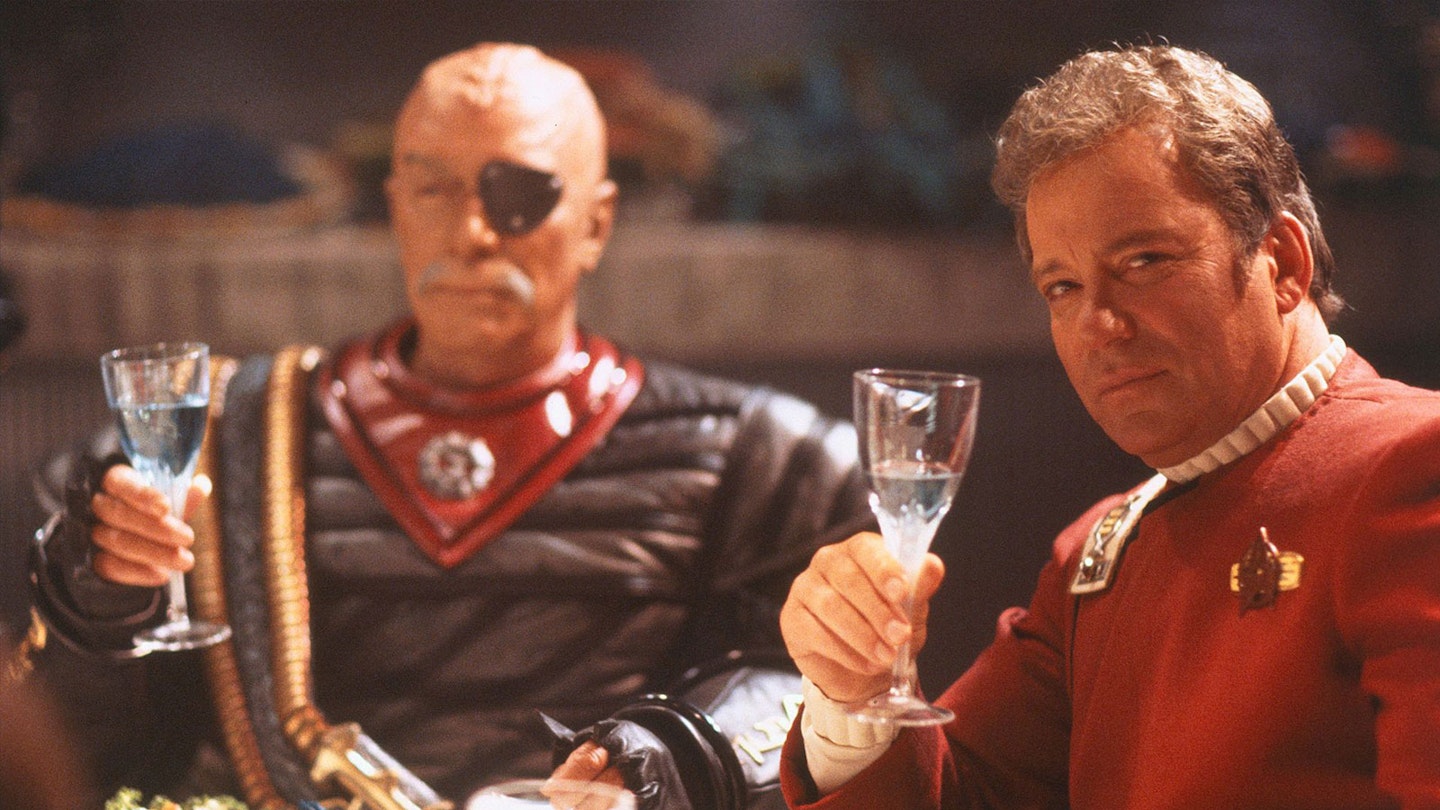 11 of 13
11 of 133. Star Trek VI: The Undiscovered Country
The near-disaster of Star Trek V almost killed the franchise, so VI was returned to the safe hands of Nicholas Meyer, who'd previously snatched The Wrath Of Khan from the jaws of The Motion Picture. It doesn't quite hit Khan levels of excellence, but it does give the series its best villain since Montalban, in Christopher Plummer's raging, Shakespeare-quoting Klingon general: a monomaniacal Ahab whose white whale is Kirk. Epic in scale, taking place across multiple ships and planets, the film's main plot hook is nevertheless a more intimate murder mystery, so there's room for character moments and effective storytelling. The obvious advancing age of the principals is explicitly acknowledged (adorably, the climax of the film genuinely rests on whether a portly old man can run up some stairs). And the wider context of peace negotiations between the Federation and the Klingon Empire serves to bridge the gap between The Original Series and the just-starting Next Generation, making this arguably a more effective handover than Generations. While some of the principal cast would return for guest appearances, either in subsequent films or on the small-screen Next Generation and Deep Space Nine, The Undiscovered Country feels valedictory, the last true hurrah of the original Enterprise crew.
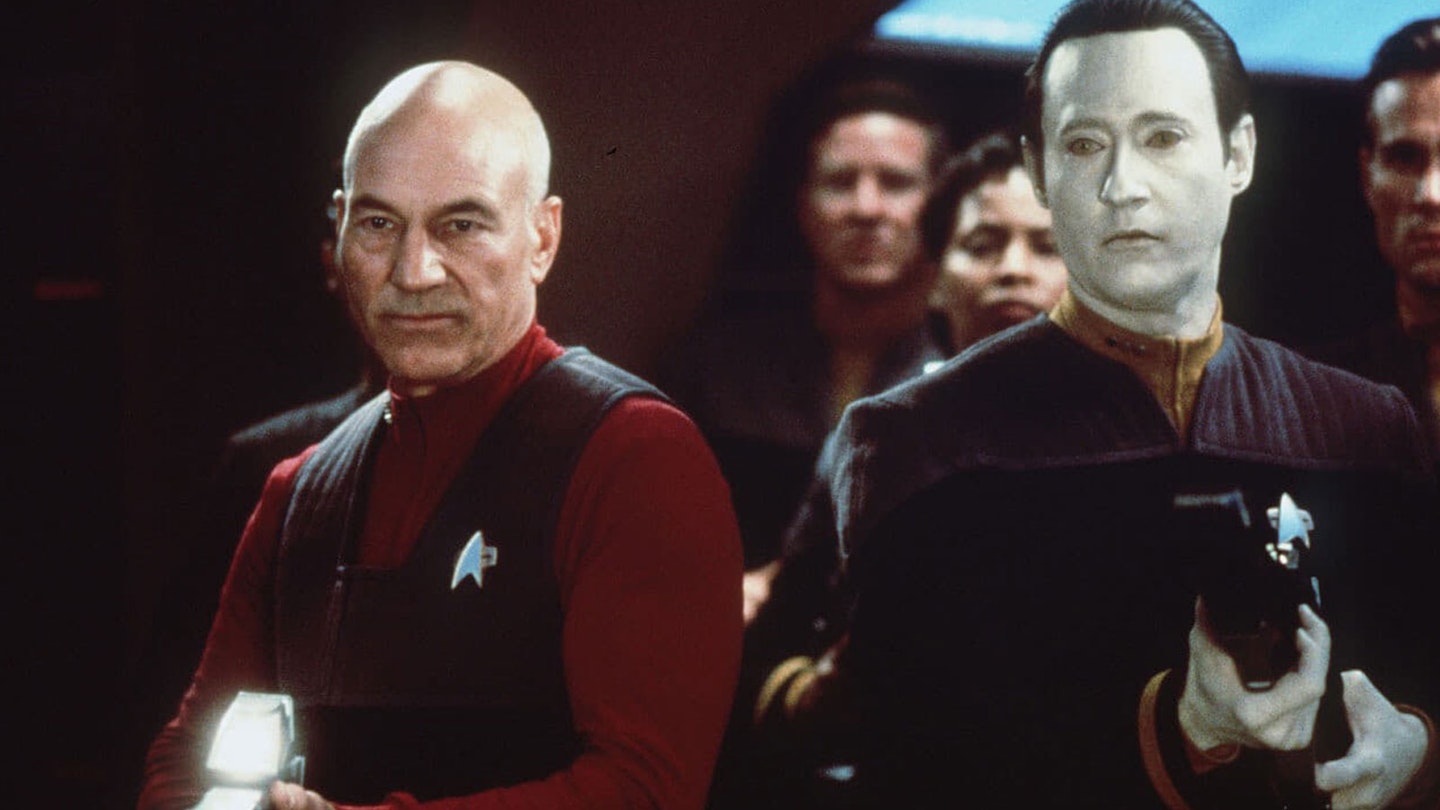 12 of 13
12 of 132. Star Trek: First Contact
With the Borg the stand-out villains of The Next Generation – they even assimilated Picard in a fantastic end-of-season cliffhanger – their progression to a big-screen face-off was almost inevitable. The results in First Contact make it one of Trek's nailed-on classics. The implacable Borg's Giger-ish design and body-horror vibe don't necessarily quite gel with the Star Trek ethos, but the film balances those elements with some wide-eyed Roddenberry-ish wonder in a plot about humankind reaching for the stars: specifically the first Warp flight. Some have questioned the introduction of the Borg Queen – they were a terrifying hive mind but now they've got a leader? – but logic aside, she's an undeniably great character, played with insidious relish by the otherworldly Alice Krige. The scenes where she's tempting Data are hugely compelling, circling around one of those big sci-fi ideas that Trek loves and addresses so well: an android choosing to be human.
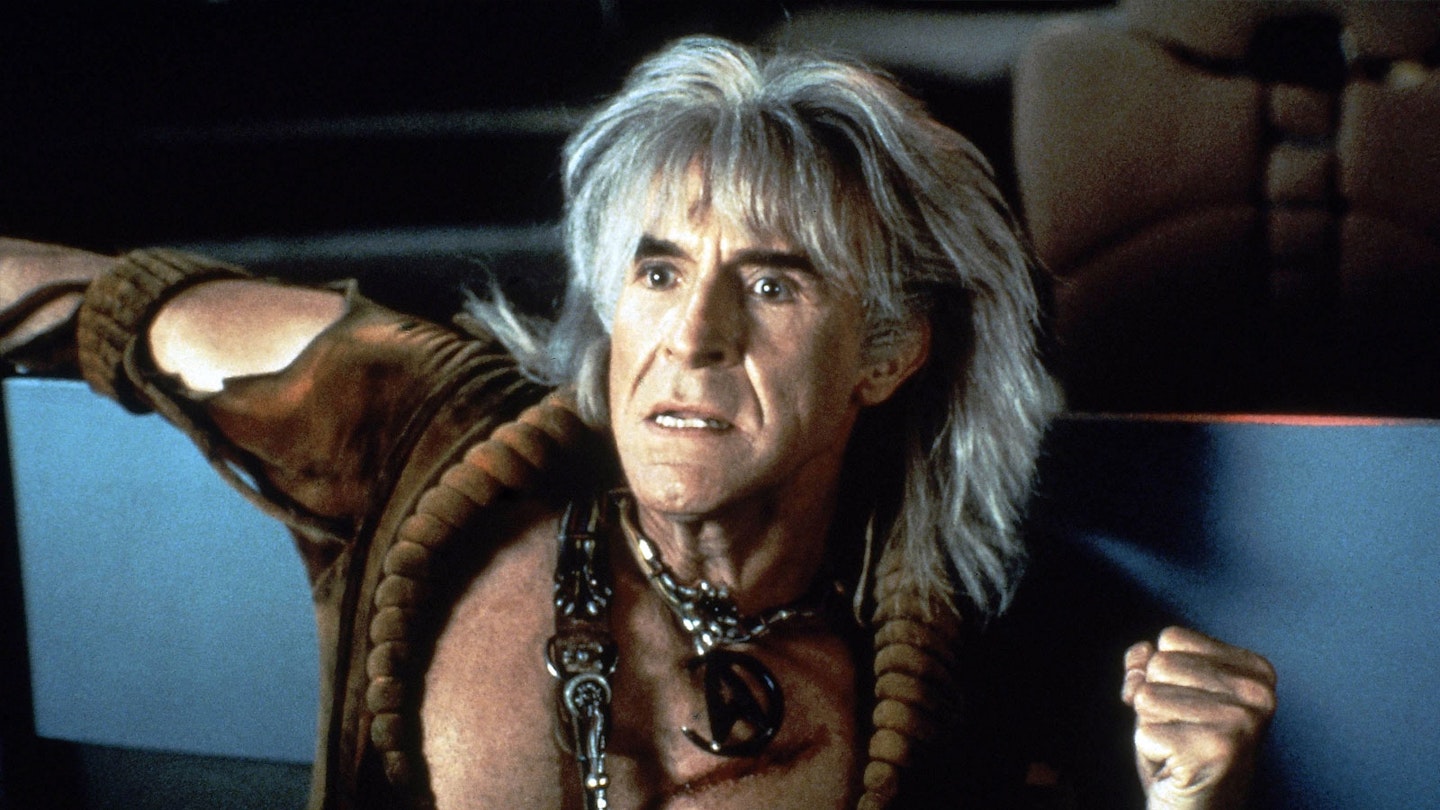 13 of 13
13 of 131. Star Trek II: The Wrath Of Khan
The film that ensured Star Trek's future. A major regrouping and rethinking following The Motion Picture, it's thrilling, breathlessly action-packed, and emotionally hefty. The Motion Picture really only had a mystery, but The Wrath of Khan gives the Enterprise crew a truly credible – even frightening – adversary in Ricardo Montalban's aggrieved superhuman, and there's no greater illustration of how genuinely high the stakes of this film are than one of the main cast having to die: the needs of the many outweighing the needs of the few. It's a straight-up, knock-down brawl across the galaxy, weaving in lore from deep Star Trek cuts but never alienating a non-expert audience (it's a sequel to a season 1 episode, but you don't really need to have seen 'Space Seed' to get immediately on board). There are new crew members - notably Kirstie Alley's Vulcan Saavik - but The Wrath of Khan proves that the legacy players are far from done, even as the film sweetly acknowledges their lengthening teeth (and faltering eyesight). And there is, of course, that Shatner moment ("KHAAAAAAAAN!"), reminding us that, while there are other space adventure franchises, there are some things that are just uniquely, gloriously Trek. Of all the films we have encountered in our Star Trek travels, this was the most… human.
